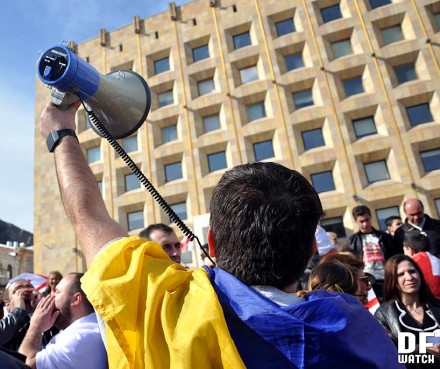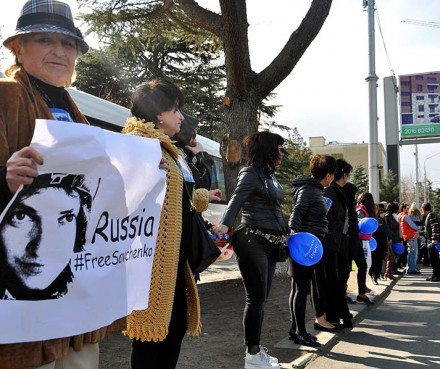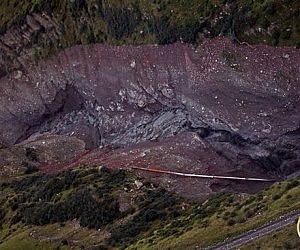
TBILISI, DFWatch–One of the seven men arrested in Georgia for planning to blow up a Russian gas pipeline has denied any links to Ukraine.
The suspect Beka Bekauri is still in hospital after suffering serious head trauma. He has had an operation and his condition is now stable.
His confession to being part of a plot to blow up a part of a Russian gas pipeline which transits through Georgia was brought into question by suspicion that the confession had been extracted under duress.
His family claims that he was beaten during interrogation in order to force him to confess.
The counter-intelligence service claims that the beating took place as he was trying to escape arrest.
Lawyer Maia Chrelashvili said her client said he was beaten by special forces at the moment he was arrested.
None of the detainees tried to escape or use a weapon as they were arrested, according to Chrelashvili, who also said there was no violence during Bekauri’s interrogation.
The State Security Service (SUS) said earlier that one of the suspects had been traveling frequently to Ukraine, but beyond that no actual link had been found.
The implication would be that the plot was connected to the many exiled National Movement politicians who are in Ukraine, some of whom are involved with the new Kiev government and others also with the war against Russian-backed separatists in the southeast of the country.
Through his lawyer, Bekauri denied that he had any links to Ukraine. Chrelashvili said on Maestro TV it was claimed that her client received USD 50,000 from abroad, but he denies that.
According to the lawyer, Bekauri’s motive was personal. He ‘hates Russian aggression’, she explained, and that’s why he wanted to organize the blowing up of the pipeline.
His aunt Mziana Subeliani is convinced that he was beaten during questioning.
“They didn’t let him go until they had broken his skull. With his skull broken, he admitted what they wanted him to say.”
She claimed the reason Bekauri was beaten was to give the impression that the case is being vigorously investigated.
“My nephew has no ties with politics,” she says.
Vladimer Rukhadze, another suspected, began a hunger strike to protest Tbilisi City Court’s decision to place all of the suspects in pre-trial detention. His lawyer Nino Makharadze said he would rather die from hunger than have status as terrorist.
Bekauri is the only one of the accused who has admitted guilt.
Out of the seven, five are accused of being part of the plot, while two are said to have known about it.
One of those accused of having had knowledge of the plot, police employee Levan Mamporia, said through his lawyer Ramaz Chincheladze that the only alleged link between him and the plot was that he registered a Facebook page promoting the idea of a united Caucasus, an idea which also former President Zviad Gamsakhurdia was a supporter of.
The pipeline which was targeted in the plot carries Russian natural gas to Armenia. Georgia taps some of the gas as transit fee, corresponding to around 12 percent of the national supply.
In spring 2015, Georgia considered increasing its import of natural gas from the Gazprom pipeline, which led to a series of protests against being dependent on Russia for energy, protests where National Movement members were particularly noticed.
In the end, the government did not increase the import of Russian gas, but left the agreement the same, which means that 12 percent of the country’s supply comes from Gazprom.
The pipeline has been hit by landslides several times.
UNM spokesperson Givi Targamadze said politicians are trying to exploit the case by making inferences about a Ukraine link at an early stage, and referred to a previous case, dubbed ‘the tyres case’, which has so far not been confirmed by the investigation.
Defense Minister Levan Izoria said on Tuesday, the day after the story broke, that he had full confidence in the counterintelligence service SUS, which he was recently deputy director of, and that the public will soon learn where the ‘terrorists’ got their assignment from.



